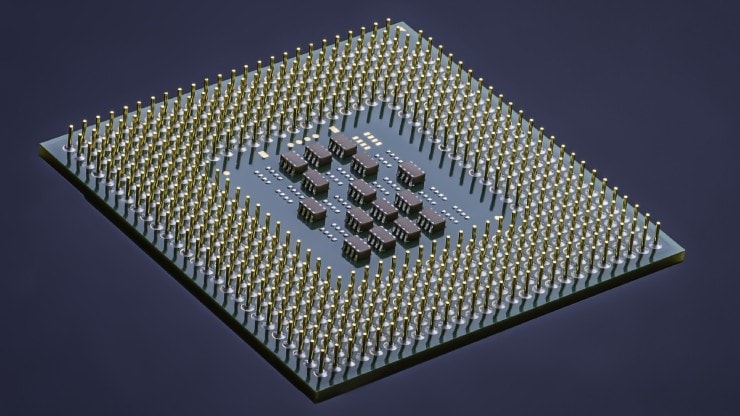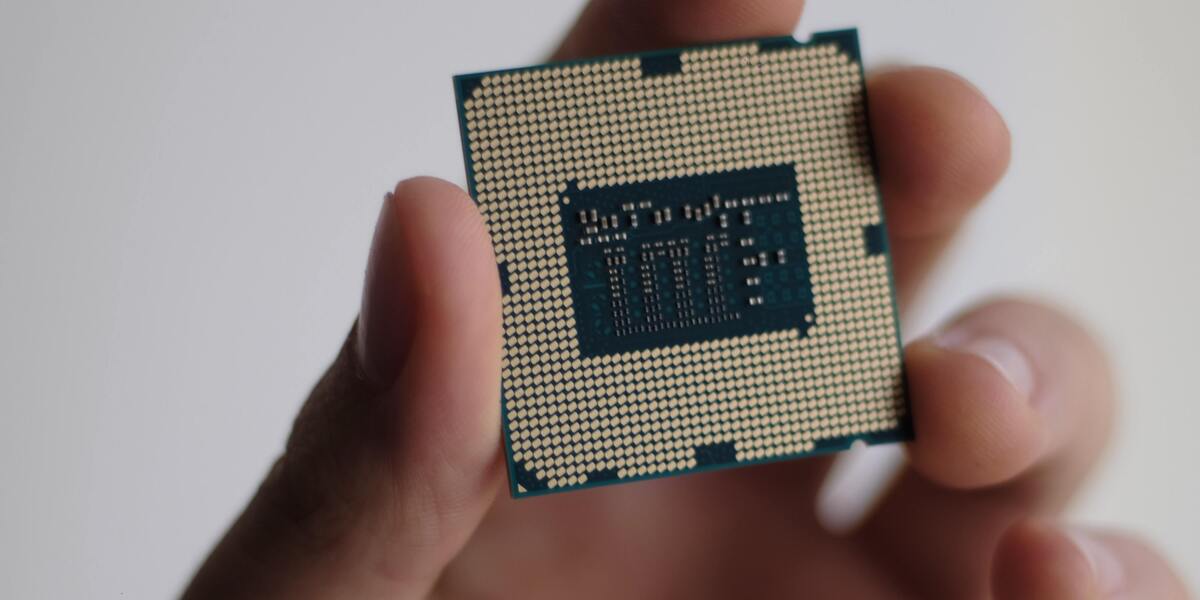Unveiling the Heart of Your Laptop: What is a Processor?
Introduction
Dive into the world of computer hardware as we unveil the heart of your laptop: the processor. Like a diligent orchestra conductor, the processor or the Central Processing Unit (CPU), synchronizes and manages all operations inside your computer. It is essential to understand the role, types, and importance of the processor as it significantly impacts the laptop's performance, your user experience, and buying choices. In this article, we break down the mysteries that surround the world's most miniature conductor: the laptop's processor, answering 'What is a processor in a laptop?' and shedding light on its importance.

What Is a Processor in a Laptop?
Revolutionizing the way we view a processor in a laptop, also known as the Central Processing Unit (CPU), we correlate it to the brain of a laptop. A processor in a laptop:

- Is in charge of all computations and complex tasks, ensuring the device's smooth operation.
- Executes and interprets the device's hardware and software instructions promising a seamless user experience.
- Dictates every action, starting from merely clicking a button to browsing through the internet.
- Generates visuals on the user's screen, adding colour and life.
In essence, a laptop processor serves as a trailblazer in assisting both simple and complex computing tasks. Ensuring the laptop is functioning optimally at various operating levels, it's much like the director in the movie of modern-day technology.
What Role Does the Processor Play in a Laptop?
A laptop's processor, or CPU, is essentially the brain of the operation. Like a world-class maestro conducting a symphony, it controls and manages every single action that takes place in your computer. Let's take a deeper look into the roles performed by this micro processing powerhouse:
- Interpreting Commands: Whenever you launch an application, double click on a file, or browse the web, your processor is at work. It interprets each of these commands in split seconds, ensuring that all functions occur as they should.
- Executing Tasks: Intense gaming session or running memory-intensive software? Your processor is the one handling all these tasks. It dictates your computer's speed and performance, determining how quickly your applications open and run.
- Processing Inputs: The processor also processes inputs from your laptop's keyboard, mouse, or touchpad. Every command you input via these peripherals is managed and executed by your laptop's processor.
- Managing Hardware and Software: Additionally, the processor communicates and controls the laptop's hardware components, as well as overseeing the instructions from the operating system and installed software.
In short, a laptop's processor plays a vital role in managing the computer's efficiency and speed, shaping its multitasking capabilities, and the overall user experience. Hence, it can be said that the smoothness of your laptop's performance largely depends on the power of its processor.
What Are the Different Types of Processors in Laptops?
The laptop market is predominantly ruled by two types of processors: Intel and AMD. Each of these has unique features, advantages, and areas of excellence, designed and constructed to cater to diverse laptop users' needs and preferences.
Intel Processors: An Insight into their Specialty
Intel processors, designed by Intel Corporation, are known for their performance efficiency, power effectiveness, and advanced technology integration. Let's break down the core attributes of Intel processors:
- Performance: Intel processors, especially the Core i5 and i7, provide high-speed performance and are particularly well-suited for multitasking and demanding computing tasks.
- Energy Efficiency: These processors are designed to maximize output while using less power, which translates to longer battery life for laptops.
- Integrated Graphics: Intel processors come equipped with on-chip integrated graphics, enhancing visual performance, especially beneficial for casual gaming and multimedia tasks.
- Hyper-Threading Technology: Some Intel processors feature Hyper-Threading Technology that doubles the available number of processing threads, leading to improved multitasking and rendering performance.
AMD Processors: What Sets Them Apart?
Developed by Advanced Micro Devices (AMD), AMD processors provide impressive performance at competitive prices. Here are a few critical pointers that signify the AMD phenomena:
- Price-Performance Ratio: AMD offers value. These processors offer excellent performance relative to their cost, making them a great choice for budget-conscious users or those who require high standard graphics.
- Strong Graphics Performance: AMD processors, especially the Ryzen series, come with capable integrated graphics, making them a favorable choice for graphic-intensive tasks like gaming and video editing.
- Overclocking Capabilities: Many AMD processors allow overclocking, a feature providing users with the ability to tweak the processor’s clock speed for faster performance.
While both AMD and Intel processors have their unique strengths and specialties, the choice between the two would largely depend on the individual user's need, preference, and budget.
How Does a Laptop Processor Impact Performance?
A laptop's processor, often recognized as the powerhouse of operations, significantly contributes to the overall performance. Its influence extends over every task - from the simplest to the most intensive. Let’s delve deeper to understand its impact:
1. Execution Speed: The efficiency of a processor directly affects the speed at which commands are executed. A superior processor accommodates faster load times and ensures smoother multitasking experiences.
2. Range of Operations: Whether it's opening a word document, launching an internet browser or running high-end games or design software, the processor is involved in every action, making its performance crucial to the user's experience.
3. Processor Specifications: The processor's speed (measured in GHz) and number of 'cores' play a pivotal role in determining the overall performance. Typically, higher numbers indicate superior performance.
- Speed: The higher the processor's speed (GHz), the faster it can interpret and execute commands.
- Cores: The more the cores, the more processes can run simultaneously without impacting the speed or causing lag.
4. User Expectations: The processor's performance greatly affects whether user's expectations are met in terms of running applications, whether they are lightweight or heavy-duty, ensuring a seamless experience.
While this overview provides an understanding of a processor's significant impact on laptop performance, it's essential to remember that the choice of processor should align with one's specific tasks and activities. No one size fits all here; the right processor varies by user end-goal and budget.
How to Choose the Right Processor for Your Laptop?
Deciding on the perfect processor for your laptop hinges on its intended use, your compute-intensive tasks, and your allocated budget. Below is a simplified guide to streamline your process selection journey:
1. Recognize your Usage Requirements: Your choice begins with understanding your computing needs.
- Basic Usage: For routine tasks like browsing the web, editing documents, and media streaming, a dual-core processor such as Intel’s Core i3 or AMD's Ryzen 3 is adequate.
- Advanced Usage: If your requirements involve heavy multitasking, gaming, photo, or video editing, opt for a quad-core or higher processors. These could be Intel’s Core i5 or i7, or AMD's Ryzen 5 or 7.
2. Keep an Eye on Your Budget:
- Intel Processors: While these might be a tad pricier, they often provide higher speed and better energy efficiency.
- AMD Processors: These alternatives are value for money, especially for graphic-intensive tasks. They offer a similar level of performance at a more affordable price.
3. Look at the Processor Specifications:
Here are a few key specifications to consider:
- Processor speed, measured in Gigahertz (GHz): a higher figure generally implies faster performance.
- Number of cores: A greater number of cores usually means better processing power, especially for multitasking.
Choosing the right processor is a critical factor that shapes your laptop experience. Your choice lies in balancing computational needs and budget, knowing that opting for the most expensive processor doesn't always guarantee the best performance for your specific tasks. Therefore, understanding your requirements is the first and most important step in this journey.
Conclusion
Understanding a laptop's processor brings you one step closer to making an informed buying decision. It is the engine that drives performance, powering each command you give seamlessly. Whether an Intel or AMD, each processor type caters to different user needs and budgets, shaping the experience you have with your laptop. So, choose wisely, knowing that the heart of your laptop lies in its processor.
Related FAQs about what is a processor in laptop
Why is the processor often referred to as the 'brain' of the computer?
The processor is often referred to as the 'brain' of the computer as it controls all the operations within the system, similar to how the brain controls the functioning of a body. It is responsible for executing commands, processing data, and governing other hardware components.
Are more cores in a processor always better?
More cores in a processor generally implies enhanced performance by enabling multiple tasks to be processed simultaneously. However, the benefit of additional cores depends on the software being used. Some programs may not utilize multiple cores, making extra cores redundant in such cases.
Can I upgrade my laptop's processor after purchase?
Upgrading your laptop's processor after purchase is theoretically possible but quite impractical and not recommended due to complications involved. Most laptop processors are soldered directly onto the motherboard. Hence, upgrade options are limited and best considered at the time of initial purchase.


